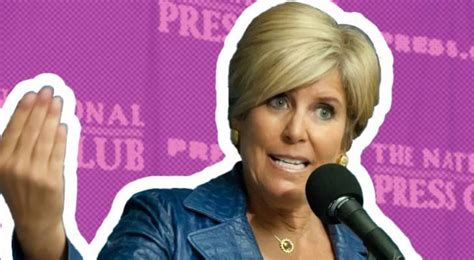
UnitedHealth Group is facing a class-action lawsuit alleging the healthcare giant improperly benefited from its employees’ 401(k) retirement plans by investing in its own funds with a history of underperformance, causing significant financial harm to plan participants. The lawsuit, filed on behalf of current and former employees, claims that UnitedHealth breached its fiduciary duty under the Employee Retirement Income Security Act (ERISA) by prioritizing its own financial interests over those of its employees.
The lawsuit, filed in U.S. District Court, alleges that UnitedHealth Group (UNH) and its related entities violated ERISA by selecting and maintaining imprudent investment options within the company’s 401(k) plan. Specifically, the plaintiffs contend that UnitedHealth invested heavily in its own proprietary mutual funds, particularly the “Deficient Funds” as the lawsuit names them, even when those funds consistently underperformed compared to available, lower-cost alternatives. This alleged self-dealing, the lawsuit claims, resulted in reduced retirement savings for thousands of employees.
The suit argues that UnitedHealth, as the plan fiduciary, had a legal obligation to act solely in the best interests of its employees and to prudently manage the 401(k) plan’s assets. By allegedly prioritizing its own profits through investments in its own underperforming funds, the company is accused of violating this fundamental principle of ERISA. The plaintiffs seek to recover the financial losses incurred by plan participants due to these investment decisions and to prevent UnitedHealth from continuing these practices. The core argument revolves around the allegation that UnitedHealth enriched itself at the expense of its employees’ retirement security.
Details of the Allegations
The lawsuit focuses on the inclusion of specific UnitedHealth-managed funds within the company’s 401(k) plan. These funds, the plaintiffs argue, consistently delivered subpar returns compared to benchmark indices and similar funds offered by other investment managers. Despite this underperformance, UnitedHealth allegedly continued to offer these funds as investment options and even encouraged employees to invest in them.
One of the central claims is that UnitedHealth benefited in multiple ways from this arrangement. First, the company collected management fees on the assets held in its own funds, generating revenue regardless of the funds’ performance. Second, the lawsuit suggests that the company may have used the 401(k) plan’s investments to prop up the performance of its own funds, creating an artificial demand for its products.
The plaintiffs argue that a prudent fiduciary would have recognized the underperformance of these funds and taken steps to replace them with better-performing alternatives. By failing to do so, UnitedHealth allegedly breached its duty of care and loyalty to its employees. The lawsuit provides detailed comparisons of the returns of the UnitedHealth funds with those of comparable funds offered by other investment managers, highlighting the significant discrepancies in performance.
Furthermore, the lawsuit alleges that UnitedHealth failed to adequately monitor the performance of its own funds and to disclose the potential conflicts of interest inherent in investing in its own products. This lack of transparency, the plaintiffs argue, further contributed to the harm suffered by plan participants. Employees were allegedly not fully informed about the risks associated with investing in the UnitedHealth funds or the potential for conflicts of interest.
Legal Basis and ERISA Violations
The lawsuit is based on the Employee Retirement Income Security Act (ERISA), a federal law that governs employer-sponsored retirement plans. ERISA requires plan fiduciaries, such as UnitedHealth, to act prudently and solely in the best interests of plan participants. Fiduciaries are also required to diversify plan investments to minimize the risk of large losses and to avoid conflicts of interest.
The lawsuit alleges that UnitedHealth violated several key provisions of ERISA. First, the plaintiffs claim that the company breached its duty of prudence by selecting and maintaining imprudent investment options. Second, they argue that UnitedHealth violated its duty of loyalty by prioritizing its own financial interests over those of its employees. Third, the lawsuit alleges that UnitedHealth failed to adequately monitor the performance of its investments and to disclose potential conflicts of interest.
Under ERISA, plan participants who have suffered financial losses due to fiduciary breaches can sue to recover those losses. If the plaintiffs prevail in the lawsuit, UnitedHealth could be ordered to compensate plan participants for the losses they have incurred and to take steps to prevent similar breaches in the future. This could involve replacing the underperforming funds with better alternatives, improving the transparency of the plan’s investment options, and implementing stricter oversight procedures.
The lawsuit seeks class-action status, meaning that it would represent all current and former employees who participated in the UnitedHealth 401(k) plan during the relevant period. This could involve thousands of individuals and potentially millions of dollars in damages. The outcome of the lawsuit could have significant implications for UnitedHealth and other companies that offer their own investment products in their employees’ retirement plans. It could also serve as a reminder to plan fiduciaries of their legal obligations under ERISA to act solely in the best interests of plan participants.
Potential Impact and Implications
The lawsuit against UnitedHealth Group raises important questions about the responsibilities of employers who offer their own investment products in their employees’ retirement plans. While it is not uncommon for companies to include their own funds in their 401(k) plans, this practice can create potential conflicts of interest.
If the lawsuit is successful, it could lead to increased scrutiny of these types of arrangements and encourage companies to take greater care in selecting and monitoring the investment options offered in their 401(k) plans. It could also prompt regulators to issue clearer guidance on the responsibilities of plan fiduciaries in these situations.
The lawsuit also highlights the importance of employees understanding their retirement plan options and monitoring the performance of their investments. Employees should carefully review the fees and expenses associated with their plan’s investment options and compare the performance of those options with that of comparable funds offered by other investment managers. They should also be aware of any potential conflicts of interest and ask questions if they are unsure about any aspect of their plan.
The outcome of the UnitedHealth lawsuit could have far-reaching implications for the retirement industry and for the millions of Americans who rely on 401(k) plans to save for retirement. It could serve as a wake-up call to companies that are not adequately fulfilling their fiduciary responsibilities and encourage them to take steps to protect the interests of their employees. The case also underscores the importance of ERISA in safeguarding the retirement savings of American workers.
Expert Opinions and Analysis
Legal experts suggest that the success of the lawsuit will hinge on the plaintiffs’ ability to demonstrate that UnitedHealth breached its fiduciary duty by acting imprudently and prioritizing its own interests over those of its employees. This will require a detailed analysis of the performance of the UnitedHealth funds, the available alternatives, and the company’s decision-making process.
“The key issue in these types of cases is whether the plan fiduciaries acted reasonably and prudently in selecting and monitoring the plan’s investments,” said a partner at a law firm specializing in ERISA litigation. “The plaintiffs will need to show that the UnitedHealth funds were clearly inferior to other available options and that the company had no reasonable basis for continuing to offer them in the plan.”
Other experts have noted that the lawsuit could also raise questions about the role of investment consultants in advising plan fiduciaries. If UnitedHealth relied on the advice of an investment consultant in selecting the funds for its 401(k) plan, the consultant could also be held liable for any fiduciary breaches.
“Investment consultants have a responsibility to provide objective and unbiased advice to plan fiduciaries,” said an investment advisor specializing in retirement plans. “If a consultant recommended that UnitedHealth invest in its own funds without adequately considering the alternatives, they could be held accountable for their role in the alleged breaches.”
The lawsuit against UnitedHealth Group is likely to be a lengthy and complex legal battle. However, it has already drawn attention to the potential conflicts of interest that can arise when companies offer their own investment products in their employees’ retirement plans. The outcome of the case could have significant implications for the retirement industry and for the millions of Americans who rely on 401(k) plans to save for retirement.
UnitedHealth’s Response
As of the time of the original news report, UnitedHealth Group had not issued a formal statement addressing the specifics of the lawsuit. Companies typically refrain from commenting on pending litigation. However, it is expected that UnitedHealth will vigorously defend itself against the allegations and argue that it acted prudently and in the best interests of its employees in managing its 401(k) plan. UnitedHealth would likely assert that their fund options were reasonably chosen and that the plan, as a whole, provided a range of investment options suitable for participants with varied risk tolerances and financial goals.
Background on 401(k) Plans and ERISA
A 401(k) plan is a retirement savings plan sponsored by an employer. It allows employees to save and invest a portion of their paycheck before taxes are taken out. Contributions are often matched by the employer, up to a certain percentage. The money in the 401(k) account grows tax-deferred, meaning that taxes are not paid until the money is withdrawn in retirement.
The Employee Retirement Income Security Act (ERISA) is a federal law that sets minimum standards for most voluntarily established retirement and health plans in private industry to provide protection for individuals in these plans. ERISA requires plans to provide participants with information about plan features and funding; sets standards of conduct for plan fiduciaries; and provides remedies if these standards are not met.
Under ERISA, plan fiduciaries have a legal duty to act prudently and solely in the best interests of plan participants. This includes selecting and monitoring the plan’s investments, managing the plan’s assets, and disclosing important information to plan participants. Fiduciaries who breach their duties can be held liable for any losses incurred by the plan.
Importance of Fiduciary Responsibility
Fiduciary responsibility is paramount in the management of retirement plans because it ensures that the plan’s assets are managed solely for the benefit of the participants and beneficiaries. This duty requires fiduciaries to act with prudence, loyalty, and diligence in making decisions regarding the plan’s investments, administration, and operations.
Prudence requires fiduciaries to act as a prudent person would in similar circumstances, using sound judgment and careful consideration when making decisions. Loyalty requires fiduciaries to act solely in the best interests of plan participants and beneficiaries, avoiding any conflicts of interest or self-dealing. Diligence requires fiduciaries to actively monitor the plan’s investments and administration, taking steps to correct any problems or deficiencies.
When fiduciaries fail to uphold their fiduciary duties, plan participants can suffer significant financial losses. This can undermine their retirement security and leave them vulnerable in their later years. For this reason, ERISA provides strong legal protections for plan participants and holds fiduciaries accountable for their actions.
How Employees Can Protect Their Retirement Savings
Employees can take several steps to protect their retirement savings and ensure that their 401(k) plans are being managed prudently. First, they should carefully review the plan’s investment options and understand the risks and rewards associated with each option. They should also compare the performance of their plan’s investments with that of comparable funds offered by other investment managers.
Second, employees should be aware of any potential conflicts of interest that could affect the management of their plan. This includes situations where the employer offers its own investment products in the plan or where the plan’s fiduciaries have a personal financial interest in the plan’s investments.
Third, employees should actively monitor the performance of their plan and raise any concerns they have with the plan’s fiduciaries or the Department of Labor. They should also be prepared to take legal action if they believe that their plan is being mismanaged or that their fiduciary duties are being breached.
Future Outlook and Potential Outcomes
The lawsuit against UnitedHealth Group is likely to be a protracted and complex legal battle. It could take several years for the case to be resolved. The outcome of the case will depend on a variety of factors, including the strength of the evidence presented by the plaintiffs, the legal arguments made by both sides, and the judge’s interpretation of ERISA.
If the plaintiffs prevail in the lawsuit, UnitedHealth could be ordered to pay significant damages to plan participants. The company could also be required to take steps to prevent similar breaches in the future, such as replacing the underperforming funds with better alternatives, improving the transparency of the plan’s investment options, and implementing stricter oversight procedures.
Even if UnitedHealth ultimately prevails in the lawsuit, the case could still have a significant impact on the company’s reputation and its relationship with its employees. The publicity surrounding the lawsuit could damage the company’s brand and make it more difficult to attract and retain employees. It could also lead to increased scrutiny of the company’s retirement plan practices by regulators and investors.
The lawsuit also has the potential to influence the broader retirement industry. It could prompt other companies to re-evaluate their 401(k) plan practices and to take steps to ensure that they are fulfilling their fiduciary responsibilities to their employees. It could also lead to calls for greater regulation of the retirement industry to protect the interests of plan participants.
Conclusion
The lawsuit against UnitedHealth Group underscores the importance of fiduciary responsibility in the management of retirement plans and the potential consequences of failing to uphold those duties. The case serves as a reminder to employers of their legal obligations under ERISA to act prudently and solely in the best interests of their employees when managing their 401(k) plans. It also highlights the importance of employees understanding their retirement plan options and monitoring the performance of their investments to protect their retirement savings. The outcome of the case will be closely watched by the retirement industry and could have significant implications for the future of 401(k) plans.
Frequently Asked Questions (FAQ)
1. What is the core allegation in the lawsuit against UnitedHealth Group?
The lawsuit alleges that UnitedHealth Group breached its fiduciary duty under ERISA by investing its employees’ 401(k) retirement funds in its own proprietary mutual funds that consistently underperformed compared to available, lower-cost alternatives. The plaintiffs claim this prioritized UnitedHealth’s financial interests over those of its employees, resulting in financial harm.
2. What is ERISA and how does it relate to this lawsuit?
ERISA, the Employee Retirement Income Security Act, is a federal law that governs employer-sponsored retirement plans. It requires plan fiduciaries, like UnitedHealth in this case, to act prudently and solely in the best interests of plan participants. The lawsuit claims UnitedHealth violated ERISA by failing to prudently manage the 401(k) plan’s assets and by prioritizing its own profits.
3. What could be the potential impact if UnitedHealth loses the lawsuit?
If UnitedHealth loses the lawsuit, the company could be ordered to compensate plan participants for the financial losses they incurred due to the alleged imprudent investment decisions. They may also be required to replace the underperforming funds, improve transparency in the plan, and implement stricter oversight procedures. Furthermore, there could be reputational damage and increased scrutiny of their retirement plan practices.
4. As an employee participating in a 401(k) plan, what steps can I take to protect my retirement savings?
Employees can protect their retirement savings by carefully reviewing the plan’s investment options and understanding the associated risks and rewards. Comparing the performance of their plan’s investments with comparable funds from other managers is crucial. Also, being aware of potential conflicts of interest and actively monitoring plan performance while raising concerns with plan fiduciaries or the Department of Labor are important steps.
5. What is UnitedHealth Group’s likely response to the lawsuit?
While UnitedHealth has not yet issued a formal statement as of the news report, it is expected that they will vigorously defend themselves against the allegations. They are likely to argue that they acted prudently and in the best interests of their employees, that the fund options were reasonably chosen, and that the plan offered a range of suitable investment options.









